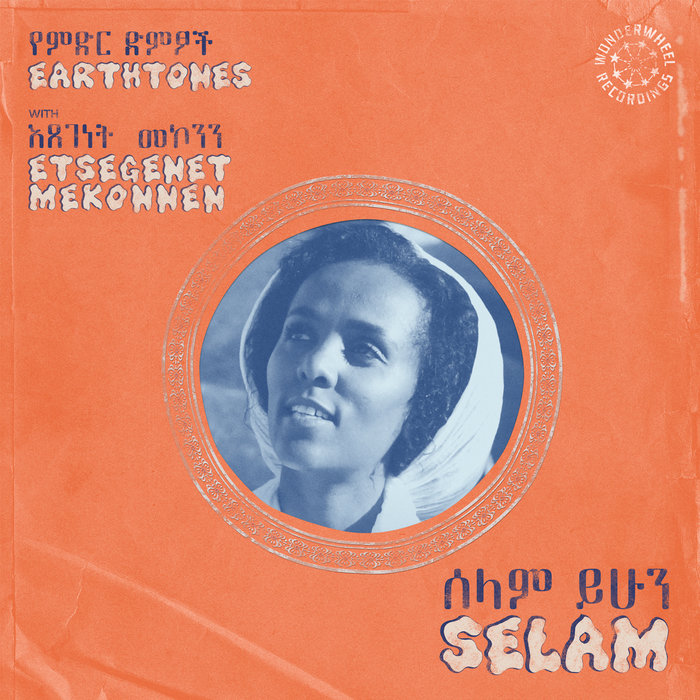
Selam – Earthtones
this blog is GROOVY – check out great Soul, Funk, Jazz, Hip Hop, Bass, Breaks , Reggae, House n many more TUNES
Hey there, fellow music lovers! Today, we’re diving into the vibrant world of Fourth World music—a genre that’s as eclectic and colorful as a patchwork quilt made by the coolest grandmas you can imagine. So grab your headphones and let’s hit play on this funky history!
Alright, before we get lost in the rhythm, let’s break down what “Fourth World” even means. The term was coined by musician Jon Hassell in the 1980s to describe a musical concept that blends different cultures while creating something entirely new. Think of it as mixing traditional sounds with electronic vibes—a cross-cultural jam session where everyone is invited.
The idea was not just about combining beats; it was more philosophical and artistic than that. It suggested an exploration beyond typical “First” (developed countries) and “Third” (developing countries) world categorizations. Instead, it’s about seeking out indigenous traditions from all corners of our globe, layering them with modern technology like synthesizers or samplers.
The genesis of Fourth World can be traced back to Hassell’s travels around the globe—think ‘world traveler meets sonic explorer’. Part pioneering soundscape artist and part musical anthropologist, he soaked up local flavors wherever he went—from Nigerian rhythms to Indian ragas—and blended them into something fresh.
In 1980, he released Possible Musics, which featured amazing artists like Brian Eno alongside his unique style—a wild fusion cocktail pouring over rich cultural influences. Here comes a fun fact: Jon once described his work as “the simultaneous experience of three types of time: real-time (now), slow-time (past), and future-time.” Sounds groovy if you ask me!
Let’s take a moment to recognize some key players in this genre who brought their own flair:
Brian Eno – The godfather of ambient music himself! Eno dabbled in Fourth World through collaborations with Hassell. Fun fact? He once said he wanted to create music that could serve as “sonic wallpaper.” Someone should tell him people have started painting walls with his album covers instead!
David Sylvian – Former frontman for Japanese band Japan, David stepped into the Fourth World scene with his solo endeavors married deep lyrics to lush soundscapes crafted from every corner imaginable.
Talvin Singh – This tabla virtuoso mixed traditional Indian sounds with drum ‘n’ bass culture—talk about crossing genres! He won a MOBO award for Best Producer while pushing boundaries further than any DJ at your last house party ever dreamed!
Nils Frahm – Although primarily known for contemporary classical piano pieces nowadays, Frahm has incorporated elements true to Fourth Worlds vibe—the whole transcendental approach balances both raw emotion & experimental electronics.
And… let’s not forget about those Morris dancers from England trying their hand at some downtempo grooves—you haven’t lived until you’ve seen someone doing jigs while holding an iPad hooked up to Ableton Live!
These musicians represent just a tiny slice of talent floating through this genre; each one contributing uniqueness worthy enough for its own headlining show at Coachella—or maybe just jammin’ down by your local café instead.
As we ride along this funky timeline train towards present day—the impact stretches far wider than anyone expected! Artists across genres have embraced those atmospheric textures combined effortlessly amongst hip-hop beats via artists like Flying Lotus or Bonobo; jazz-infused experiments showcased within Kamasi Washington’s works too prove how far-reaching these influences actually go when given room breathe without restrictions imposed traditionally defined barriers between styles based solely upon geography/culture!”
And guess what? Genres aren’t static—they grow and develop constantly! With advances technology today allowing more creative freedom via digital tools available now than ever before…so who knows what incredible futures lie ahead?!
Now that we’ve painted this audacious landscape full colors—it wouldn’t be complete without sprinkling some giggles here & there:
Did you know Jon Hassell wore sunglasses indoors so much people thought he’d developed an alias? Almost superhero status right there!
Talvin Singh was once late for a show because he got stuck behind two cows on country road… guess they weren’t moved by fourth-world vibes either!
In an interview asking David Sylvian how many instruments he plays ,he quipped ‘all except frying pans’ … pretty sure someone will try making melodic omelettes next year soon enough folks.
When Nils Frahm was asked if playing live stresses him out ,his response :“Only whenever I remember mid performance no one told audience they came see me fail!’”
See? Even these legendary figures find ways keep things lighthearted amidst such serious artistry—not taking themselves too seriously keeps creativity flowing freely—all part being human after all!
So there you go—a quick jaunt through the funky realm known collectively as Fourth World music! Surprise twists await around every corner—musicians blending cultures showcase everything under sun creatively reframed together again yet still shining bright uniquely individualistic vibes within different contexts completely distinct unto itself…
Next time find yourself puzzled trying describe soundscapes encompassing various cultural backgrounds layered harmoniously together remember—even though labels exist—they’re often limiting so let’s embrace diversity nurture creativity keep it grooving onward into eternity…who knows what gems will emerge next high energy cosmic dance floor beating pulse resonating throughout universe waiting ignite hearts souls alike yours truly included?!
Keep vibin’, everybody! 🎶

Selam – Earthtones